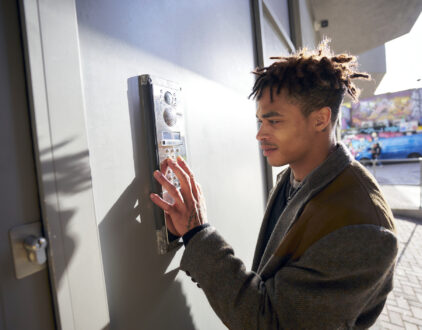We love our pets. And leaving them alone at home can be a stressful experience, but even more so for them. If your furry friend tends to act out when you’re away from home — whether due to separation anxiety, noise sensitivity, or fear of being alone — there are ways that you can help.
To keep your pet calm while you’re away, take a look at these eight strategies to help soothe their anxiety.
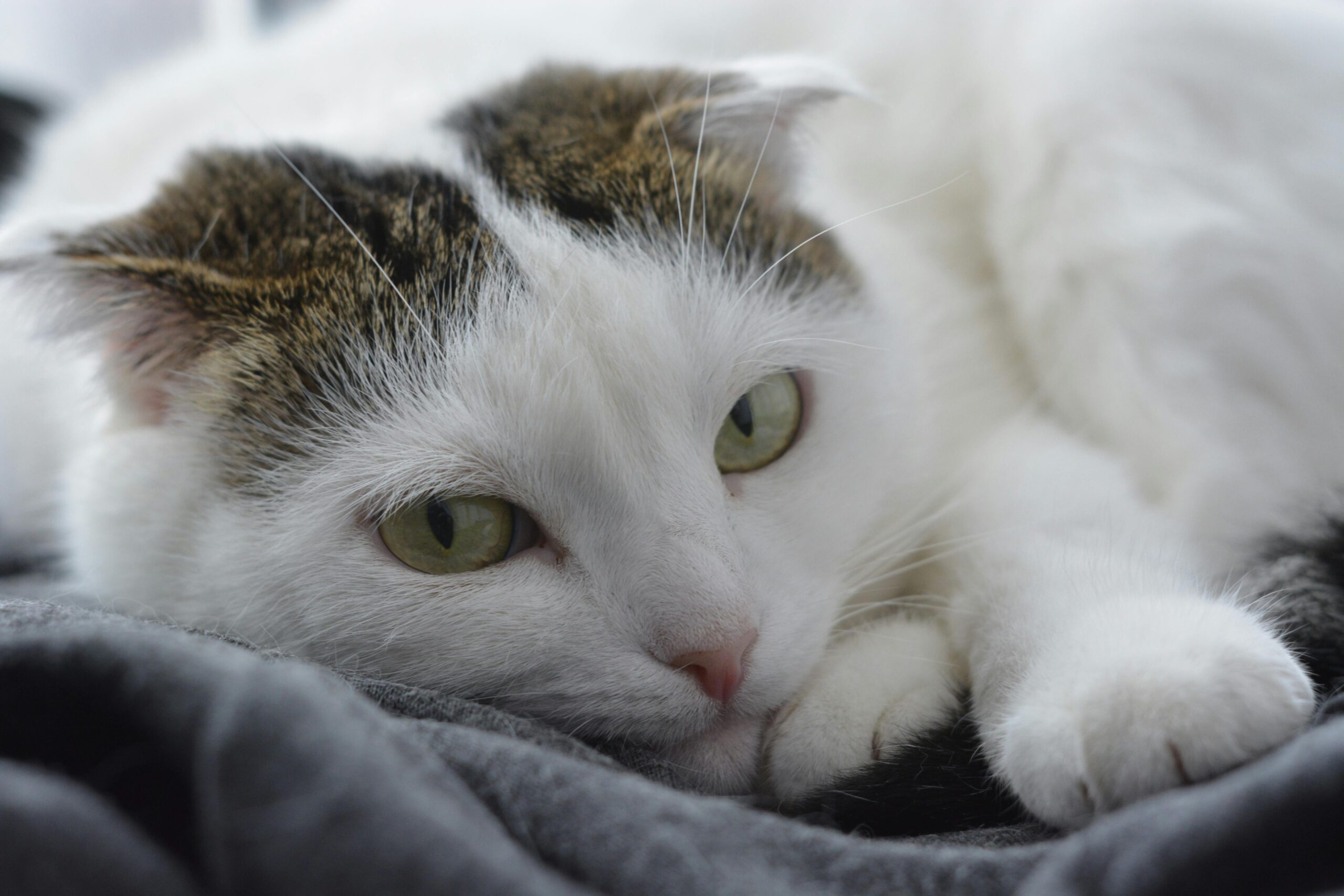
Learn about pet separation anxiety.
Before you scold your furry friend for chewing on your slippers, take a deep dive into understanding the signs of separation anxiety in pets.
Common symptoms of mental distress in domesticated animals include excessive barking or meowing, destructive behavior, pacing, shaking, panting, and relieving themselves in inappropriate areas.
By learning more about pet anxiety, you can approach the problem with compassion in order to handle it more effectively.
Create a routine.
Like children, pets do very well with a routine. Not only does creating a routine for your pet help relieve anxiety for your furry friend, but it can provide you with peace of mind, too.
To create a more structured environment for your pet, begin establishing a daily schedule. This can include everything from when you feed your pet to when you take them for walks to even playtime.
When using a routine, the key is to be consistent, so be sure to follow through with your activities at the same times each day. Predictability provides a sense of security and stability for your pet, which helps minimize their stress levels when you’re away from home.
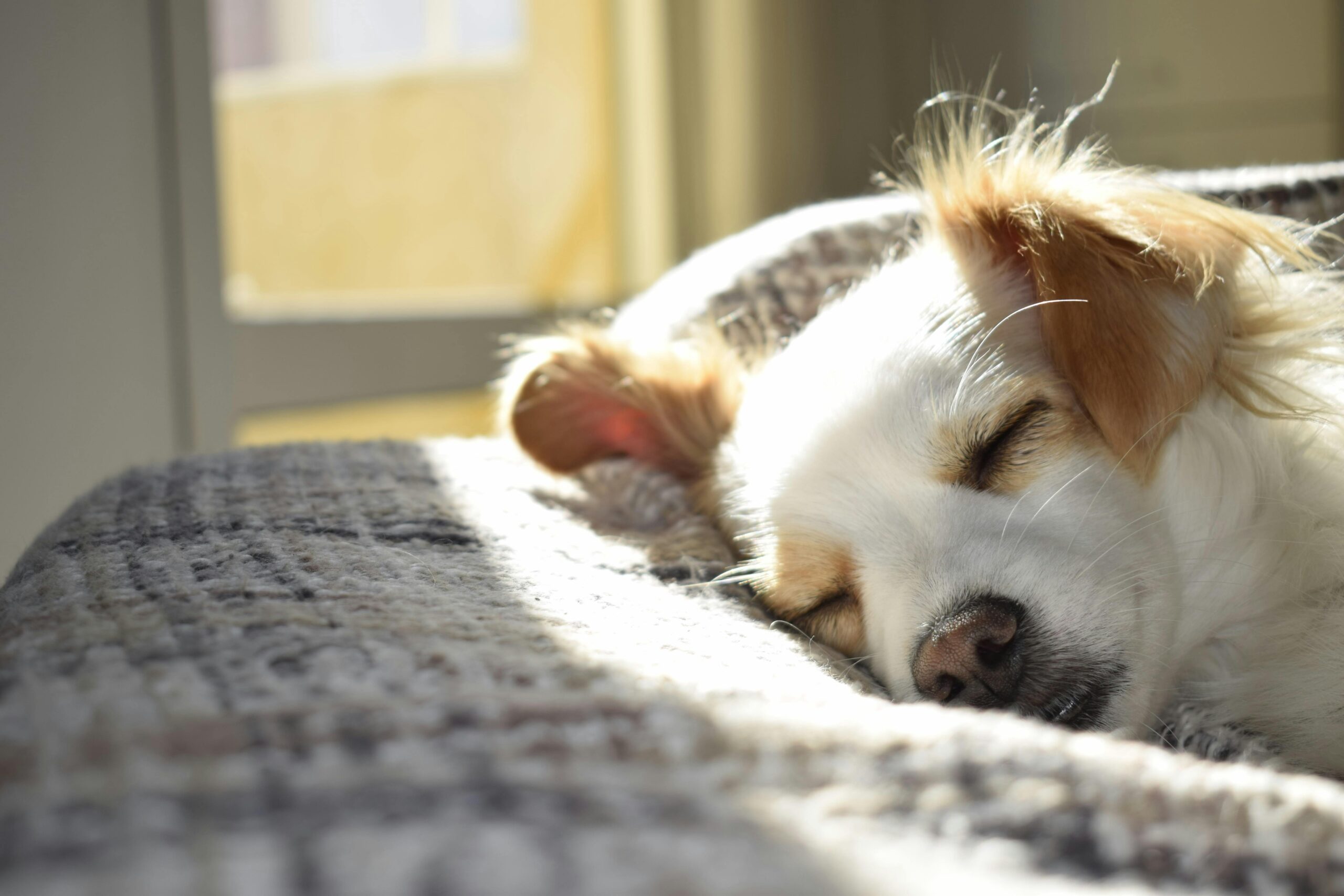
Provide a comforting environment.
A helpful way to keep your pet calm when you’re not home is to create a comfy, cozy environment for them. You can easily do this by setting up a plush bed or blanket in their own special, quiet area of the house where they can retreat to feel secure.
Pro Tip: Consider using calming pheromone diffusers or other specialized sprays that are meant to reduce stress in pets.
Equip the home with interactive toys and plushies.
When left alone, your pets can easily become bored, which can lead to anxiety and thus, destructive behavior.
To keep your pet entertained in your absence, try placing a few interactive toys around the house for them to enjoy. These toys can help distract your pet by keeping them mentally stimulated to alleviate boredom when they’re alone.
For fun toy ideas, puzzle feeders, treat-dispensing toys, and laser toys are perfect for keeping anxious pets distracted.
Use background noise.
Noisy neighbors, loud music, and other background noise can startle pets, causing them to become anxious, especially when you’re not home.
Try leaving a radio or television playing to help mask sudden sounds that may trigger pet anxiety. Additionally, peaceful music or even a white noise machine can drown out external noises, while helping your pet feel less alone.
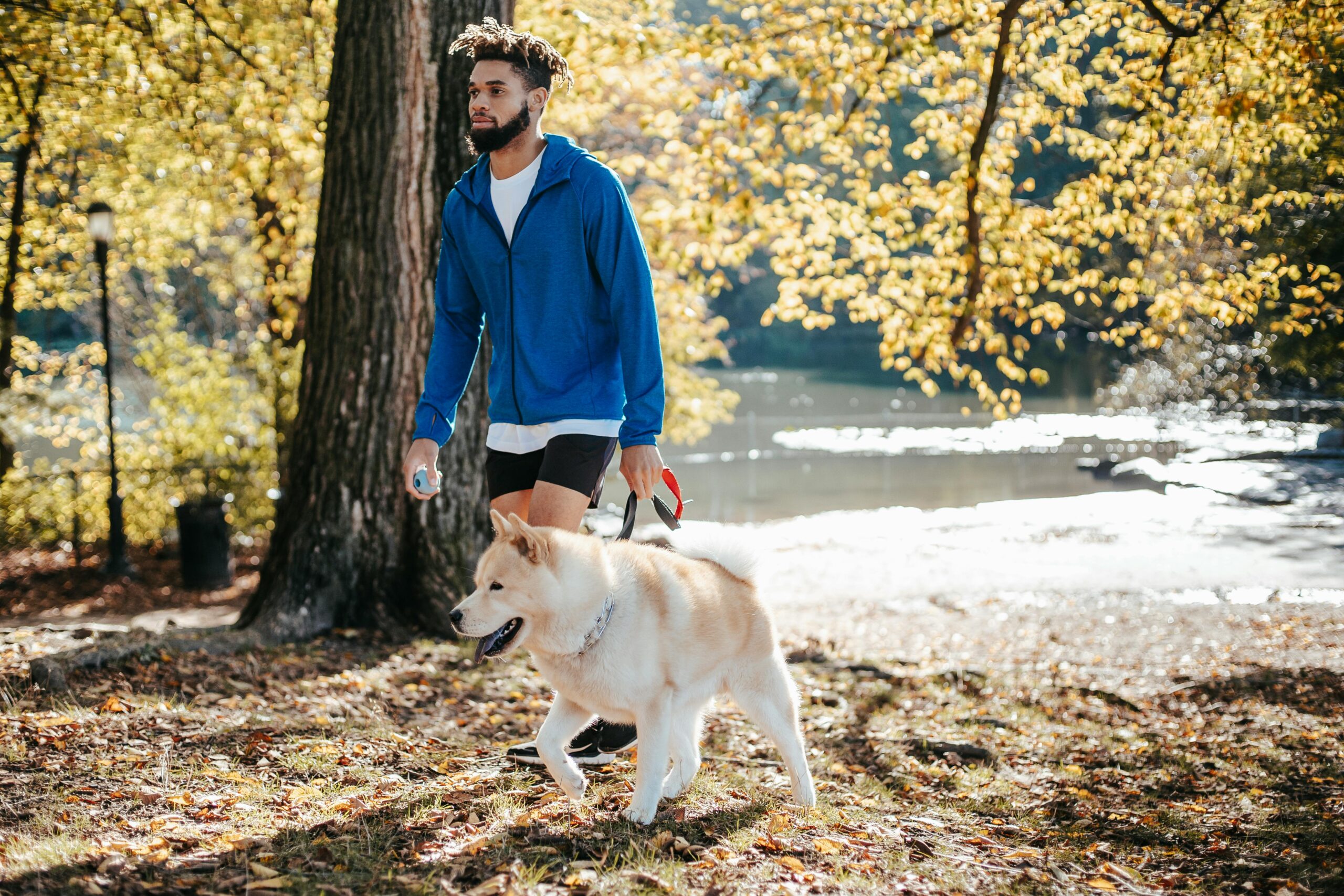
Try a pet sitter or dog walker.
If your pet experiences severe separation anxiety when left alone, hiring a pet sitter or dog walker can provide the companionship they crave.
You can have someone stay with your pet the entire time you’re away, or simply visit them periodically for a brisk walk or feeding. No matter what you decide, hiring a pro for help can provide your pet with some much-needed attention and interaction.
Practice desensitization training.
Exposing your pet to their triggers little by little can help desensitize them over time. To do this, start by leaving your pet alone for short periods, then gradually increase the duration as they become more comfortable.
When practicing desensitization training, be sure to reinforce good behavior with treats or praise to help them see being alone is safe and okay.
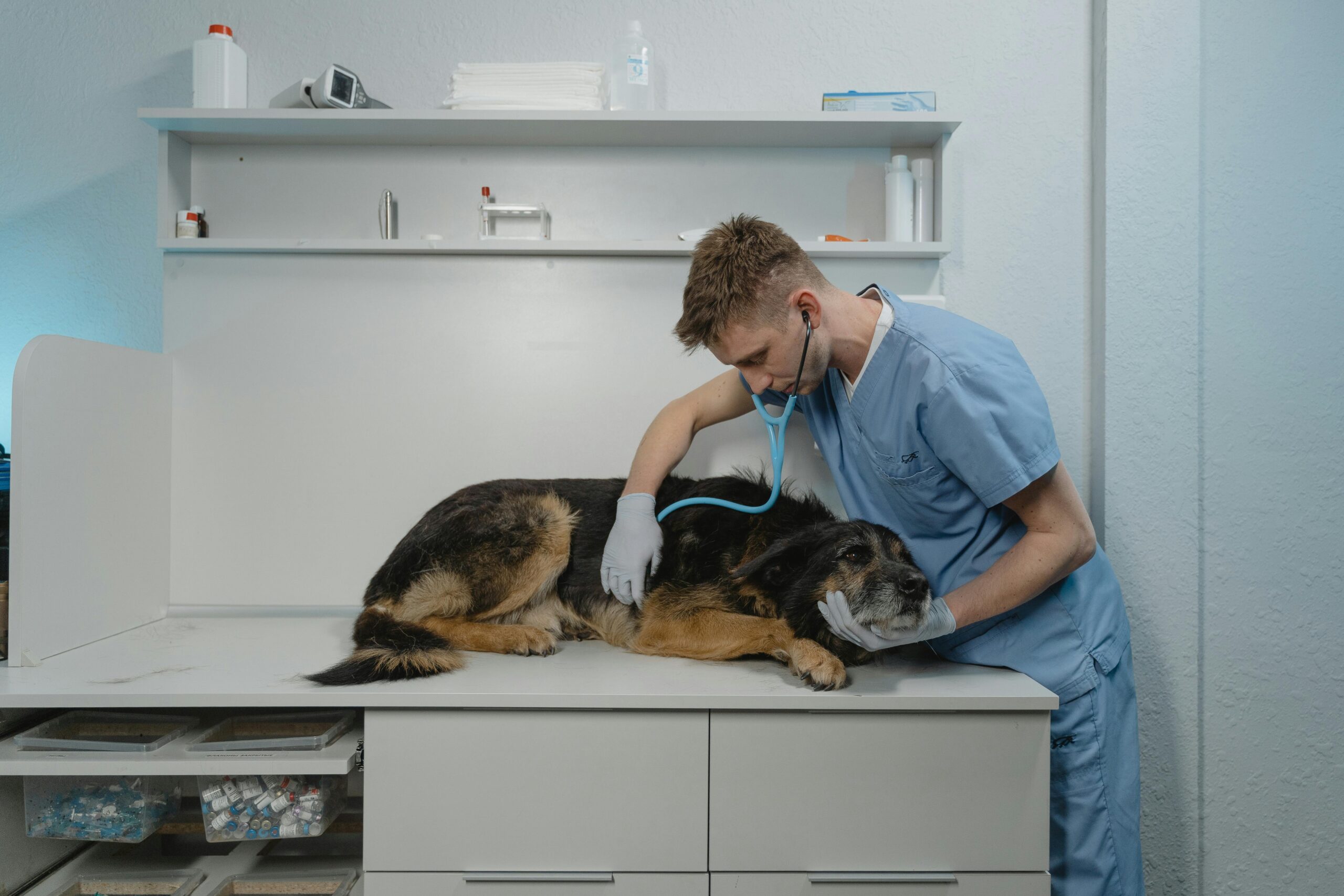
Seek professional help.
If all else fails, and your pet’s anxiety persists or worsens, it might indicate a bigger problem is going on. If this happens, be sure to consult with a veterinarian or animal behaviorist for help. They can identify the cause of your pet’s anxiety and recommend personalized strategies or medications to help treat it effectively.
popular posts
- 1It’s Black Business Month, So Let’s Go Shopping and #BuyBlack!
- 2These Home Decor Items Will Instantly Make Your Space Look Outdated
- 3Black-Owned Home Decor Stores To Support Across the United States
- 4A Look Inside Elon Musk's Tiny $50,000 House
- 57 Black and Multicultural Designers To Follow For Design Inspo

Which 5 U.S. States Rank the Highest for Bed Bugs?
by Brittni Williams | March 13, 2024
FOLLOW ALONG ON INSTAGRAM
#homeandtexture
Find us on social for more home inspiration where culture, personal style, and sophisticated shopping intersect to help you create a home where you love to live.

